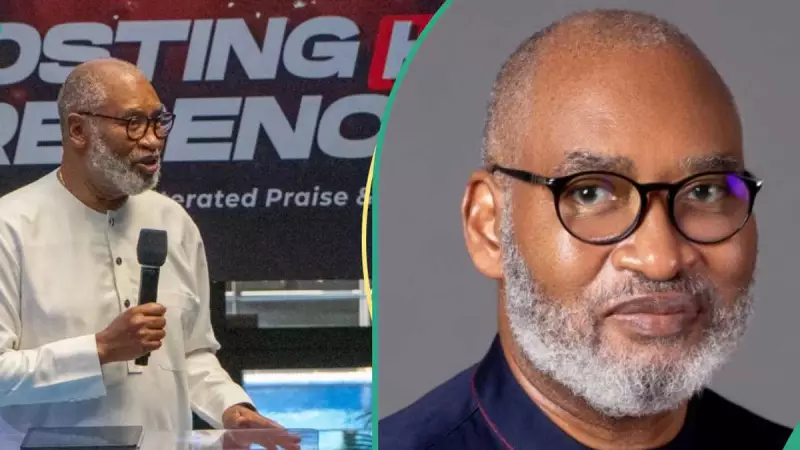
In a thought-provoking development that has captured national attention, Senior Pastor Paul Adefarasin of House on the Rock Church has openly questioned the authenticity of former US President Donald Trump's sudden courtship of Nigerian Christians.
The prominent religious leader expressed his reservations during a recent sermon, highlighting the timing of Trump's outreach just months before the crucial November presidential elections. "Why now?" Adefarasin asked congregants, suggesting the move appears strategically calculated rather than genuinely concerned with the welfare of Nigerian believers.
The Political Timing Raises Eyebrows
Pastor Adefarasin's comments come amid Trump's intensified efforts to win over Christian voters globally, including Nigeria's substantial Christian population. The clergyman noted that throughout Trump's presidency and subsequent years, there was minimal engagement with Nigerian Christian communities facing various challenges.
"When we needed advocacy during difficult times, where was this enthusiasm?" Adefarasin questioned, pointing to periods when Nigerian Christians faced security threats and needed international support.
Nigerian Christians as Political Pawns?
The respected pastor warned against allowing the Nigerian Christian community to become "political capital" for foreign politicians seeking electoral advantages. He emphasized the importance of discerning genuine partnerships from transactional relationships that serve external political agendas.
Adefarasin's message resonated with many congregants who have become increasingly wary of international political figures seeking to leverage Nigeria's religious demographics for their own purposes.
A Call for Discernment Among Believers
The House on the Rock leader urged Nigerian Christians to exercise wisdom and spiritual discernment when evaluating political overtures from international figures. He stressed that the community's interests should remain paramount, rather than becoming collateral in foreign political campaigns.
"We must ask ourselves whose interests are truly being served here," Adefarasin stated, encouraging believers to prioritize substantive policy discussions over symbolic gestures.
This development highlights growing skepticism among Nigerian religious leaders about international political engagements with the country's Christian community, particularly when they coincide with election cycles in Western nations.





